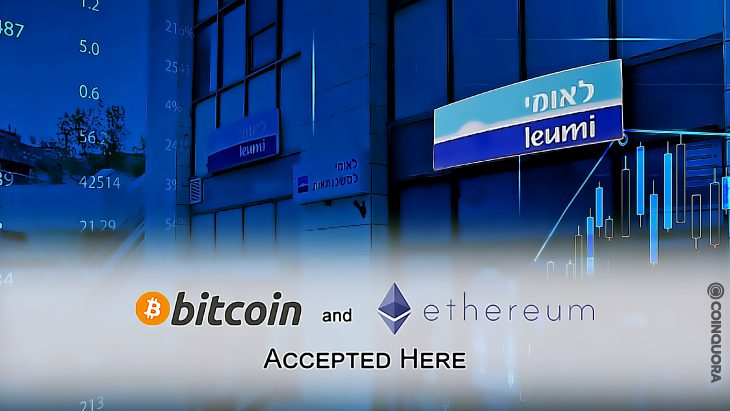- Leumi Bank, a large lender in Israel, has reportedly started accepting Bitcoin (BTC) and Ether (ETH) trading.
- The service will initially support BTC and ETH but will expand to support other cryptocurrencies as well.
- No official start date has been announced for the service, while regulatory approval is still pending.
Leumi Bank, one of the largest lenders in Israel, has reportedly started accepting Bitcoin (BTC) and Ether (ETH) trading.
According to a report released on Thursday by Reuters, Leumi’s digital platform, Pepper Invest, has partnered with the blockchain infrastructure provider Paxos to launch cryptocurrency trading. As a result, Pepper Invest clients can now buy, sell, and hold cryptocurrencies.
Initially, the service will only support BTC and ETH and will later add support for other cryptocurrency assets. In addition, the minimum transaction was valued at around $15.50 or 50 shekels for cryptocurrencies, as stated in the report.
No official start date has been announced for the service, while regulatory approval is still pending. The report highlighted: “Pepper will collect tax according to the guidelines of the Israeli Tax Authority so that customers will not need to manage tax complexities.”
Leumi Bank had previously prohibited an account belonging to Bits Of Gold, a cryptocurrency exchange, citing regulatory concerns. However, a Supreme Court ruling at the time declared that Leumi Bank was not allowed to block the exchange’s account.
Banks from several countries were hesitant to accept BTC and other cryptocurrencies at first. However, the situation is changing as demand from corporations and individual customers has increased.
The majority of global regulators have also shifted their attention away from outright banning cryptocurrency to instead look into developing a regulatory framework for digital currencies.
This is a significant development that represents a paradigm shift in the attitude of the global financial sector towards digital assets.


